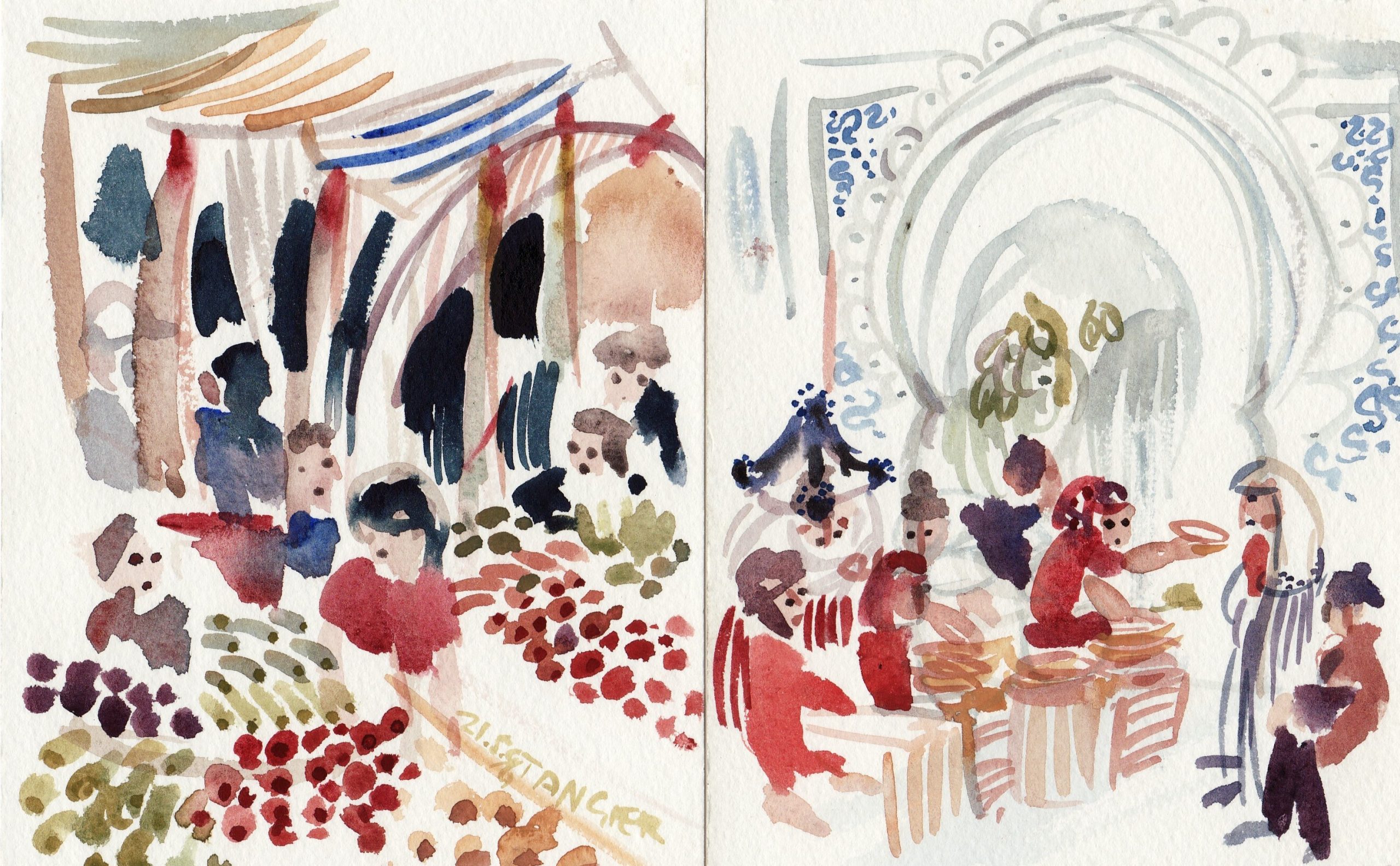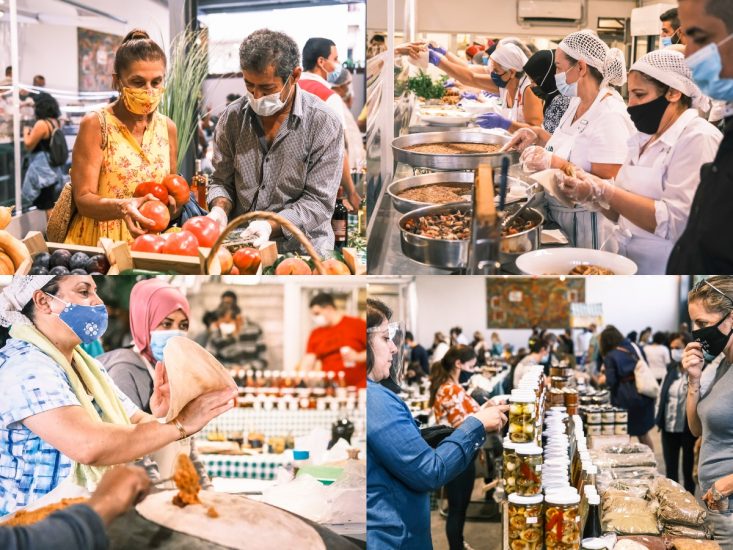
Kitchen Table No. 4 – digest from the chatline
Can Food Really Bring People Together?
Kamal Mouzawak, Christine Codsi and Jaimee Lee Haddad of Souk El Tayeb joined Symposium trustee David Matchett to tell us about life in Lebanon and their journey to build and maintain a community through food.
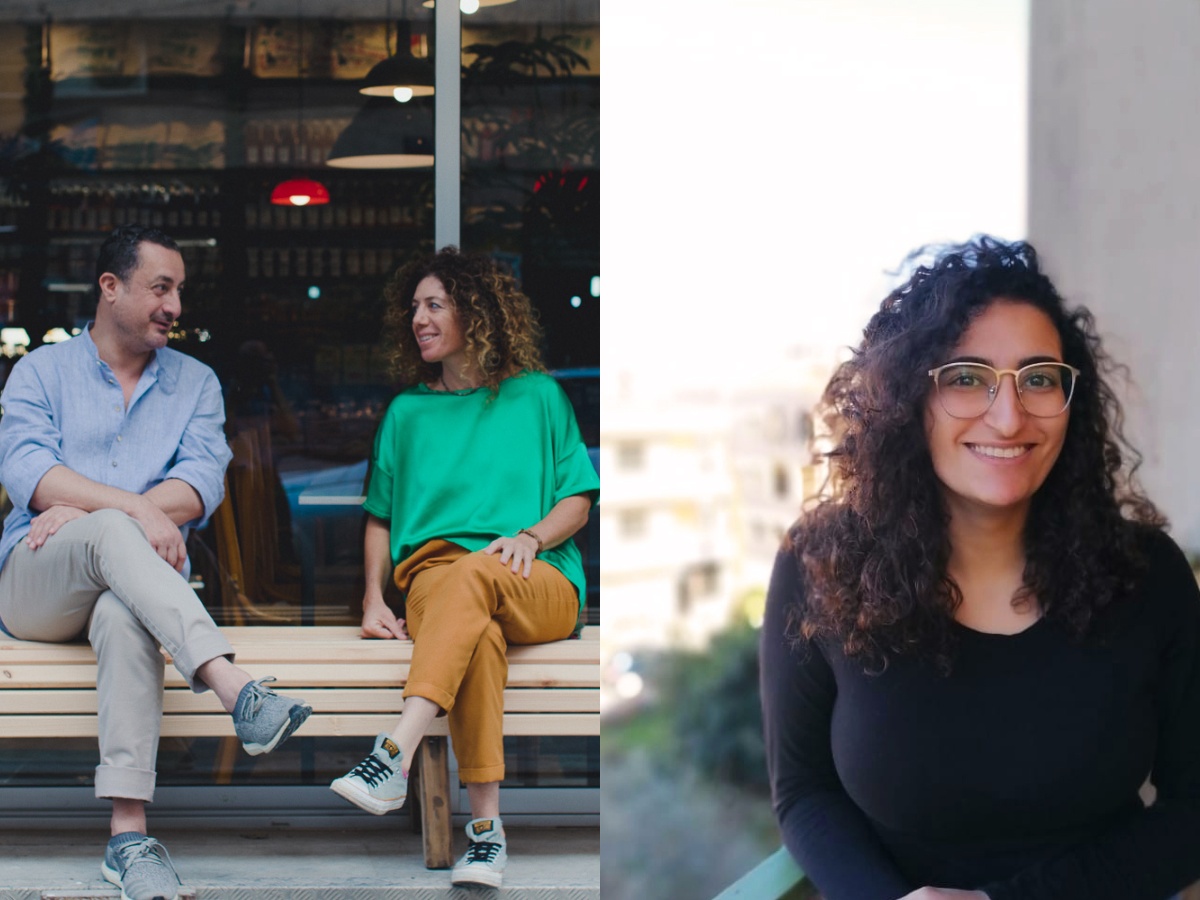
Kamal Mouzawak is the founder of Souk el Tayeb, Lebanon’s first-established farmers market. As the son of farmers, Kamal grew up knowing at first-hand how food is produced and prepared. After majoring in graphic design, he embarked on a successful career as a food and travel writer. Work as a TV chef specialising in healthy cooking convinced him of the need for social and environmental change. This became the inspiration behind the establishment of Souk el Tayeb, in 2004, as a place where food and tradition could bring communities together by providing a market-place for small-scale farmers and producers, many of whom were already practicing sustainable agriculture as a way of life. Today’s Souk el Tayeb is an institution that includes a weekly farmers market, “food & feast” regional festivals, “souk@school” education and awareness programs, el tayeb newsletter, “dekenet Souk el tayeb”, and “Tawlet Souk el Tayeb” or the farmers’ kitchen-table, a place where people can gather together to share home-cooked food, “This,” explains Kamal, “is about supporting individuals in very fragile situations who recognise they can generate an income through sharing their own culinary identity and food roots with others. Seeing people believing in themselves, respecting themselves and furthering themselves brings me a lot of joy.”
Christine Codsi joined Souk el Tayeb as a managing partner in 2009 after working for nine years as a business consultant in a Lebanese consultancy firm developing vision and strategy in business planning. She met Kamal while taking a sabbatical in 2008, at a time when the original marketplace was facing the kind of challenges with which Christine was already familiar. Willing and able to do something she considered meaningful for her country, she offered to provide consultancy services in developing what she believes Lebanon needs: pro-bono local development, sustainable businesses, direct and visible impact. After three months auditing Souk el Tayeb, she presented her recommendations in the form of a hundred page power-point document convincing enough for Kamal asked her to join as a full-time partner to help in implementing the recommendations.
Jaimee Lee Haddad made the move to Lebanon from the US in January 2020. After spending the first six months living in the northern part of the country with her family – gardening, reading, drawing and hiking – she started working at Souk El Tayeb as communication coordinator in September 2020. Appropriately for a communicator, she spotted the job-offer on Instagram and applied without hesitation immediately.
The edited Q&A from the chatline demonstrates the commitment of all three of our invited guests at the Kitchen Table on January 21st to an extraordinary resurgence of the spirit of Lebanon in the heart of her capital, Beirut.
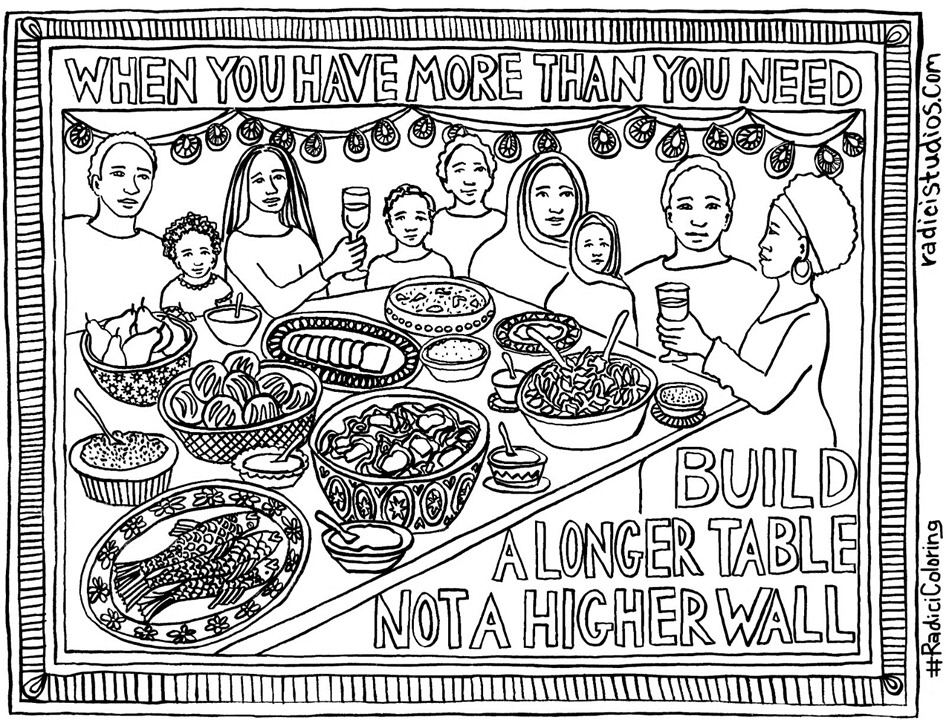
From Kamal
When we started it in 2004, the farmer’s market was like a magnet…it was important that this was a producers’ market rather than a sellers’ market.
Notes from the chatline
Lebanon should be a case study for the 21st century – [answering] the question of how we should all live together…[What’s needed is] longer tables rather than higher walls….[let’s] be different but with something in common… Why don’t we look beyond what divides us and celebrate what we have in common…we have to celebrate this diversity.
From Kamal
There are not two leaves alike on a tree. Maybe no one is right and no-one is wrong…maybe others are right too, it’s just different points of view. If you come at them with open arms they have wider arms.
From the chatline
[When Kamal says] It’s not about the food, [this] is so profound to me right now. I am missing all the people I eat and cook with desperately, and yet, while food is what we gather around it’s not what really matters…The kitchen table is so important….Like coming home….the cook tells you her story of herself through her food….I can relate because I’m from India, where eating together is such a big thing….Cooking with food and love at the kitchen table – yes, that is what we all need – it’s the basis of everything, and always anti-folkloric.
From Kamal
Tawlet [the name of the restaurant associated with the farmers market] is a new concept of sharing food while highlighting home-made. It opens as a regular restaurant and is well advertised and attracts locals and travellers. All that we did was about productive economy and not charity. When there is charity people lose their dignity.
From the chatline
If it’s charity, all too often [there’s] resentment….I want to be eating in Tawlet right now…
This is a social enterprise, so by definition a way to highlight and harvest talents….There is just so much to admire and to learn from Souk el Tayeb – how to rebuild society without ‘us and them’. Wonderful….How to do things better? is the initial question…This is really a social gastronomy project that has been so successful and make a difference in a country in need of emergency support….This love of sharing and feeding people as at the heart/hearth of community is in essence the same message that came from the extraordinarily uplifting 7 day Oxford Real Farming Conference with 5000 people, many small farmers, around the world – nurture soil/land/our fellow plants and rest of biodiverse first and food and community will follow….if only politicians could make it appealing for young people to become farmers/local food producers, the good life could indeed be a prize for all of us.
From Christine
Think first how we can help socially.
From the chatline
We need to realise the power of food to shape society ….our ancestors knew this very well…Your bed and breakfast concept is such a natural way to operate locally with global impact. Increasingly travellers are seeking out what you have conceived as “embassies of pride”….Using food as a tool for social impact…‘food is a tool’ – yes indeed: for better or worse…There are projects all around the world using food. Just look at the CLINK in London or Gastromotiva in Rio. There are so many projects developed. And the Pandemic has increased this effort….Etymology of restaurant is ‘to restore’….as Gandhi said “Be the change you want to see”…
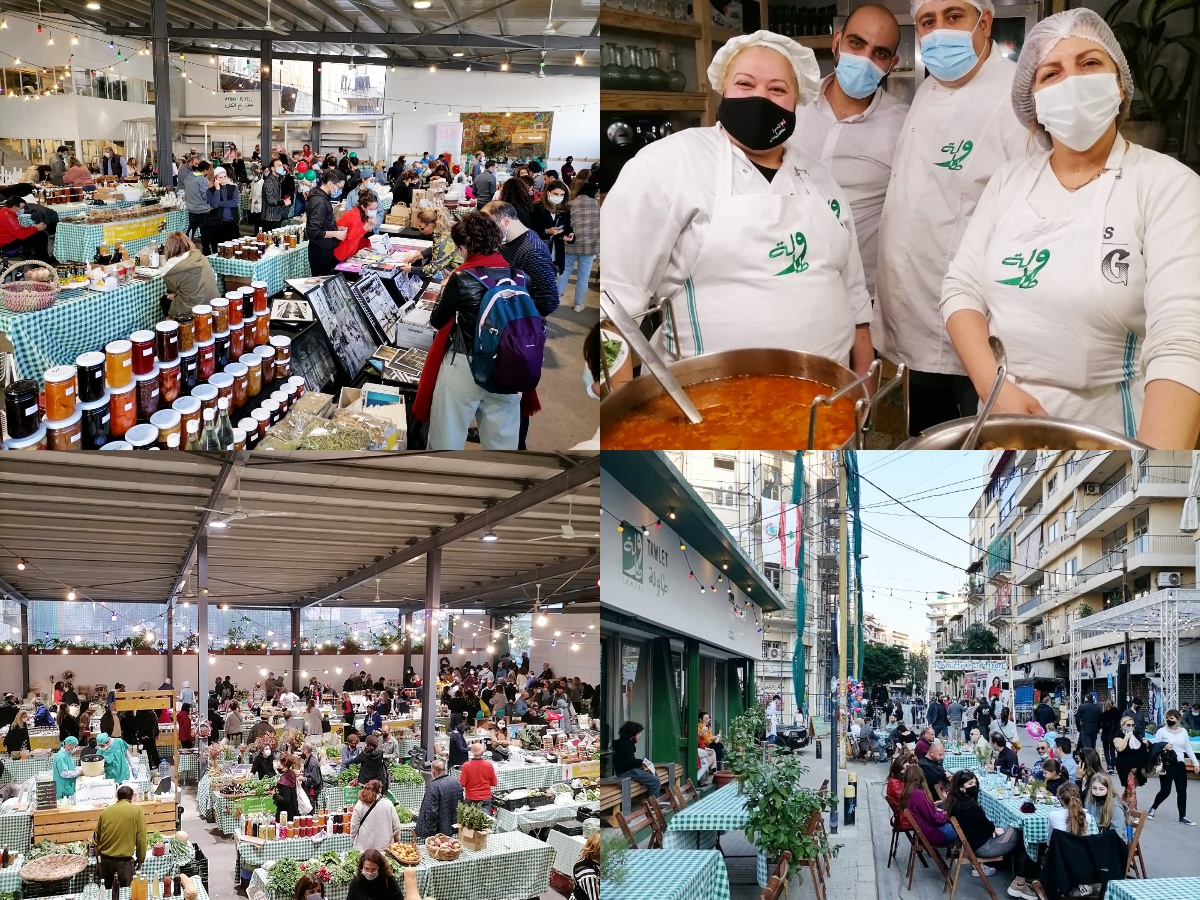
From Kamal
What change do you want? It’s for you to decide. All issues – they are all human problems. Human betterment and human development is the only [possible] approach.
From the chatline
Yes—human problems [are] seeing ourselves as not a part of the natural world.
…What strikes me about Lebanon as opposed to a country like the UK is the fact that the traditional food culture is still relatively intact. It seems to me that we need to ask the question again what is a good life – valuing food and sharing it is just one of the most obvious ways of moving towards a more sustainable, equitable world….
Yes: food shapes the world, so good food shapes the world better…That is the great challenge here in the UK..how to recover a food culture which is an understanding of food and where it comes from – not doing master chef at home. We are very far from this in the UK. Such a simple question. What is a good life.
From Kamal
There is no perfect solution…but there is a good solution for a particular issue.
From the chatline
Traditional food culture is so important, and so hard to rebuild once it’s lost….relationships, trust, generosity…respect for all life….I think we’ve forgotten how to ask the question. We need to give ourselves permission again.
From Jaimee
[What’s needed is] learning, sharing, making connections with a goal in mind. There’s no shortage of stories in the Souk.
From the chatline
Eating together, sharing together is the Lebanese way….Unfortunately, bringing in Western food chains like McDonald’s is what seems to be seen like ‘development’. Kids don’t want homemade food, they know burger-names by heart….The big constant question in my own area of London – how do we gather together – shops, farmers market, local markets, food growers and all to promote, truly grow a food culture, given its long absence….yes – ‘solving the food problem’ has always been seen as progress – but we forget what is lost in the transition…
From Kamal
Our slogan is ‘make food not war’.
From the chatline
So many indigenous recipes and indigenous foods are lost in transition….
Perhaps we should think about setting up a lunch table at our local farmer’s market every week? Post-covid distancing…..How do we prise people out of their houses again who have got used to ordering Thai curry at 2am from Deliveroo?…I think we’re all ready to get out and be social.
From Kamal
Tradition is not a museum, you know… if something is alive, it changes. Belonging through food is a kind of belonging that can be shared.
From the chatline
I got involved in a local farmers market for a number of years..a sort of political act…True – in fact there has probably never been a better time to rethink the power of food to bring us together….
One of the most inspiring things about the Oxford Real Farming Conf was the thousands of young farmers around the world who LOVED being on the land, who can teach others this way forward and that it is a wonderful way to live…we were talking about how young people didn’t always want to eat traditional foods…Kamal reminded us don’t fight this, but build parallel roads and get the parents to encourage these foods -the young will come full circle….This is about change being necessary for life.
From Jaimee
Change is not a rejection but a modification. At school in the US, I ate dolmas inside a bread roll so that my classmates wouldn’t know I was eating what [to them] looked like a turd’! The trick is finding hope for what one can do. The question to ask is what can I do with what I have? There are plenty of people not wanting to leave Lebanon and trying to find solutions.
From the chatline
McDonalds (and others) offer free wifi which has become more significant, particularly to lower income youth with no free wifi at home….Not just to youth, but to adults, when libraries are closed…They are heated too – and when it’s cold at home and you can’t afford to heat your home…But asking that question – what do I want for my life? – is also a privilege to have the time and mental space to ask…
From Kamal
How do I make my own right choices? It’s always up to the individual to make the best choices.
It is humility that is at the root of good choices. Human betterment and development are the essence!
From the chatline
We have to embrace what it takes to sustain us – that is how we become human…Thanks Kamal for embodying the ideal that we should embody our ideals…We need to look at need – that is the obvious thing. There is one truth and that is fairness, which is what folkloric is…If you go to a farmers market, the farmer will bring what’s in season….If you go to a supermarket you buy the same thing all year long – if you go to a market you buy what is seasonal. It’s all about what’s obvious….Embracing the necessary – yes!
